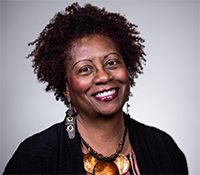SHARING YOUR GIFTS – CHOOSING EXTRACURRICULAR ACTIVITIES
In this era of competitive college admissions, students and their parents are often in a quandary about which activities are “best”. Many even develop a checklist of all the “right” ones so that they can ensure to check all of the boxes. Surely, that will boost the chances of admission. But what if that golden list of activities does not represent any of the student’s interests or highlights aspects of his/her personality?
The possibilities for extracurricular activities are endless. Opportunities to engage beyond the academic are plentiful. The hard part is choosing which one(s) are a good fit for you based on your interest, time, future goals, etc. Whether the activity is a school-based club, a community-based nonprofit organization, a competitive athletic team or a part-time job, it’s important that you know why you are willing to invest time through participation. It is also important to gain something meaningful from the experience. Let’s look at some typical activities.
Academic Teams and Clubs – these clubs/teams show a passion for learning more about a particular subject. They often participate in competitions with similar groups from other schools. Examples include Robotics, Science, Math, Astronomy, Writing, Entrepreneur
The Arts – participation in the arts begins as a hobby or casual pastime for many students. It’s an opportunity to allow one’s creative juices to flow. Excelling in your craft is a way to demonstrate leadership skills – becoming first chair in the orchestra, getting a lead role in the annual theatre production are examples.
Student Government – participation in student government is a great option for students who want to have a voice in school matters. This is a natural way to show leadership skills by representing the interests of the student body. And yes, there’s a role for “quiet leaders” within student government organizations so it’s a great way to step out of one’s comfort zone and develop self-confidence.
Culture Clubs – students interested in promoting diversity, inclusion and acceptance find a home in clubs such as Latino Student Union, Desi, Black Student Union, Vietnamese Student Union, etc. These clubs serve as a vital “safe-space” on many campus for groups with small populations within the student body.
Part time job – while many may not consider a part-time job as an extracurricular, it really is. For many students, they may not have the luxury of participating in after-school or extracurricular activities because they must work to help support their families. Jobs provide opportunities for building skills and it’s important for students to recognize the non-monetary value of work experience.
Other extracurricular activities include: Internships (paid and unpaid); student newspaper (for writing enthusiasts, although there are other skill sets required to produce print or electronic newspapers); and athletics (school-based or community/league teams). I’m sure you’re wondering why I haven’t mentioned volunteer work and/or community service. I saved it for last because it’s often what comes to mind first. By thinking of some of the activities mentioned above, you might think of community service differently, by considering getting involved in an area in which you already have interest. I like to think of community service as “sharing your gifts” to benefit others. This is a chance to think differently and consider “what can I give” vs. “what’s in it for me.” Connect your interests with opportunities to fill a gap or need. If you enjoy reading or writing, seek out a local literacy program; perhaps you can share your musical talents at a senior center; teach art at a child care center; help assemble bikes for an organization that gives donated bikes to children; utilize your knowledge of American Sign Language to be an interpreter. Find organizations that whose mission is aligned with your interests and consider approaching them about starting a program or activity – you’d be surprised at how receptive they are likely to be. Not only would you get to do something you enjoy, but it would demonstrate how you take initiative, develop an idea and implement it – all very important life skills.
Regardless of the extracurricular activities you choose, the common thread is exploration and action based on your interests. This perspective does not stop with high school or even college, but should be the guide even into your adult years. When I reflect on my own high school experience, I played volleyball, sang in the glee club, helped coach the girls’ basketball team and tutored Spanish. My college years were filled with several Afro-centric organizations like Black Student Union, Black Pre-Business Society, Sisters-in-Stanford, along with work-study jobs at the Career Planning and Placement Center (peer counselor) and the Black Community Services Center (administrative assistant). Today, I am still involved in multiple organizations and because their missions are aligned with my passions, it is work that feeds my soul – “heart work.”

